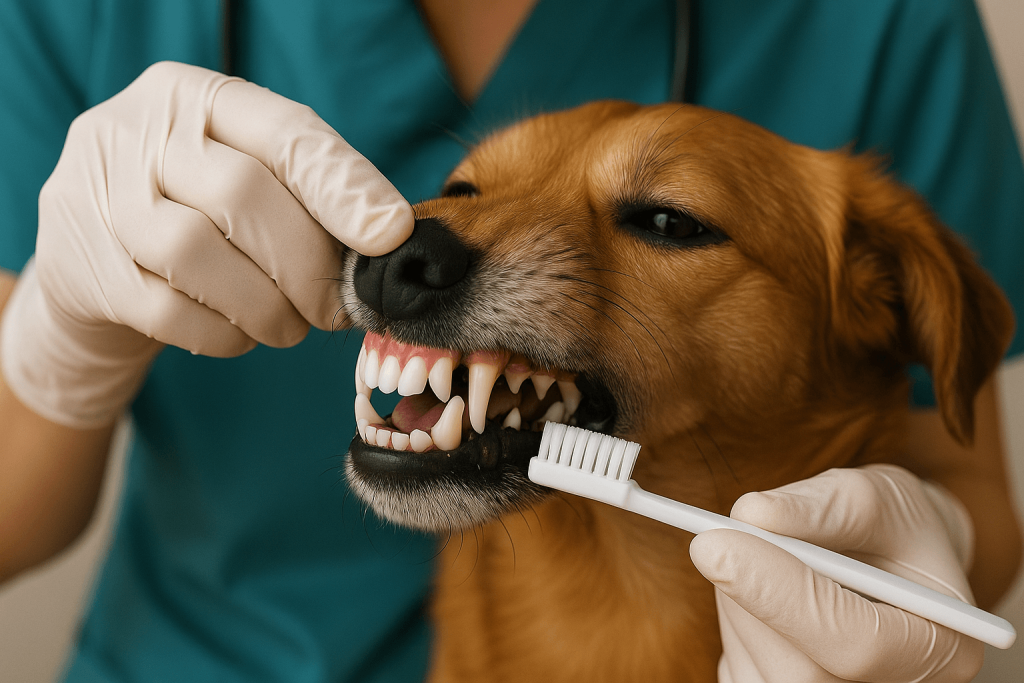Introduction: Why Pet Health Awareness Matters

Our pets aren’t just animals — they’re cherished members of our families. Just like humans, they can suffer from a wide range of health issues, some of which may surprise you. Many of these conditions creep up silently, often going unnoticed until they become severe. By learning about common yet overlooked pet health problems, you can take proactive steps to keep your furry friends healthy, active, and happy.
In this article, we’ll explore 10 surprising pet health problems and share expert-backed tips on how to avoid them.
Commonly Overlooked Pet Health Issues
1. Dental Disease in Pets

Dental disease is one of the most common but overlooked pet health problems. Plaque buildup can lead to gingivitis, tooth decay, and even systemic infections. Signs include bad breath, difficulty eating, and swollen gums.
Prevention Tip: Brush your pet’s teeth regularly, provide dental chews, and schedule professional cleanings.
2. Obesity and Weight-Related Disorders
Obesity affects nearly 60% of cats and dogs in the U.S. Excess weight can lead to diabetes, heart disease, and decreased lifespan. Many owners unknowingly overfeed or give too many treats.
Prevention Tip: Stick to a vet-recommended diet, avoid table scraps, and ensure daily exercise.
3. Skin Allergies and Irritations
Skin problems often go unnoticed until pets start scratching excessively. Common triggers include pollen, fleas, and certain foods. Untreated allergies can lead to infections.
Prevention Tip: Regular grooming, flea control, and hypoallergenic diets can reduce flare-ups.
4. Ear Infections in Dogs and Cats
Pets with floppy ears or lots of fur around the ear canal are especially prone to infections. Symptoms include head shaking, foul odor, and redness.
Prevention Tip: Clean your pet’s ears regularly and keep them dry after baths or swimming.
5. Parasites You Didn’t Know Could Harm Pets
Beyond fleas and ticks, pets are vulnerable to hidden parasites like mites, hookworms, and giardia. These can cause anemia, weight loss, or digestive problems.
Prevention Tip: Regular deworming and year-round parasite prevention are key.
6. Urinary Tract Infections and Kidney Issues
Cats are especially prone to urinary tract infections and kidney disease. Symptoms include frequent urination, blood in urine, and straining.
Prevention Tip: Provide fresh water daily, feed wet food, and schedule regular vet checkups.
7. Arthritis and Joint Pain in Younger Pets
Many owners assume arthritis only affects older pets, but it can develop in younger ones due to genetics or injuries. Signs include stiffness, limping, and reluctance to jump.
Prevention Tip: Maintain a healthy weight, provide joint supplements, and encourage low-impact exercise.
8. Behavioral Health and Stress-Related Illnesses
Just like humans, pets can experience anxiety and depression. Stress can lead to destructive behavior, loss of appetite, and even immune system problems.
Prevention Tip: Provide enrichment toys, maintain a stable routine, and consider calming aids if needed.
9. Heartworm and Other Silent Killers
Heartworm disease is often symptomless until advanced stages. Spread by mosquitoes, it can cause heart failure if untreated.
Prevention Tip: Use monthly preventive medications recommended by your vet.
10. Toxic Household Hazards You Might Overlook
Everyday items like chocolate, xylitol, grapes, onions, and certain plants (like lilies) can be deadly to pets.
Prevention Tip: Pet-proof your home and keep toxic foods and chemicals out of reach.
Early Warning Signs Every Pet Owner Should Watch For
- Sudden changes in appetite or weight
- Excessive scratching, licking, or biting
- Persistent coughing or sneezing
- Lethargy or unusual behavior
- Bad breath or drooling
- Vomiting or diarrhea
Spotting these early signs can save your pet’s life.
How to Prevent These Pet Health Problems
Nutrition and Balanced Diet
A proper diet tailored to your pet’s age, breed, and health needs can prevent many issues. Consult your vet for personalized recommendations.
Regular Veterinary Checkups
Routine checkups ensure early detection of diseases. Annual or biannual visits are essential, even if your pet seems healthy.
Exercise and Mental Stimulation
Daily walks, playtime, and puzzle toys keep your pet physically and mentally fit.
Grooming and Hygiene Practices
Brushing fur, cleaning ears, trimming nails, and bathing regularly reduce health risks.
Safe Home Environment
Keep harmful substances locked away, provide a comfortable space, and minimize stressors.
FAQs on Pet Health Problems
Q1. What is the most common pet health problem?
Dental disease is the most widespread but often ignored issue in pets.
Q2. How often should I take my pet to the vet?
At least once a year for healthy pets, and every six months for seniors.
Q3. Can stress really affect my pet’s health?
Yes, stress weakens the immune system and can lead to behavioral and physical problems.
Q4. Are home remedies safe for pet health issues?
Not always. Some remedies can be harmful. Always consult your vet before trying them.
Q5. How can I prevent parasites in my pet?
Use year-round preventive medications and maintain good hygiene.
Q6. What foods are toxic to pets?
Chocolate, onions, garlic, grapes, raisins, xylitol, and alcohol are highly toxic.
Conclusion: Healthy Pets, Happy Homes
By understanding and preventing these 10 surprising pet health problems, you can help your furry companions live longer, healthier lives. Regular checkups, balanced nutrition, and a safe environment are key to avoiding these issues. A little awareness today can make a big difference tomorrow.
Leave a Reply